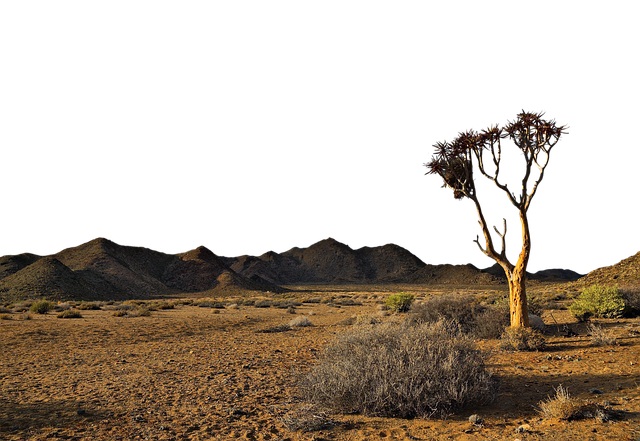INTRODUCTION
Desertification: It is defined as the conversion of productive/fertile land into unproductive or desert by series of processes. It is further classified as a land subjected to degradation by natural or anthropogenic processes.
The productive land becomes more susceptible to aridity. Water becomes scarce in arid regions and hinders crop production.
Also read our article: Climate change and its Causes and Effects.
CAUSES OF DESERTIFICATION
Desertification is caused by both natural and anthropogenic activities.
Natural Causes: Natural causes include natural disasters such as frequent floods, extreme weather events, climatic conditions, wildfires/bushfires/forest fires, etc. All these factors result in land degradation that eventually leads to the desertification process.
Anthropogenic Causes: Human activities that cause desertification include deforestation, overgrazing, over-cultivation, mining, tillage practices leading to erosion, urbanization, etc. Human activities sometimes accelerate natural causes that lead to desertification.
Also check out: Global Warming – Causes, Effects, and Solutions.
EFFECTS OF DESERTIFICATION
Desertification show impacts on topsoil, water reserves, economy, etc. Land degradation by human or natural causes is prone to the following effects.
1. Droughts: The degraded land leads to desertification and becomes vulnerable to drought conditions. Aridity suppresses crop production.
2. Famines: When degraded land is no longer produce crops and drought prevails then all these conditions contribute to famines and cause food insecurity in the area.
3. Land Becomes Unusable: The productive lands degraded by human activities turn barren and non-productive. It increases problems for farmers.
4. Habitat Destruction: It is a known fact that productive lands are home to many species. Desertification changes the habitats of organisms, which then have to migrate to more suitable habitats. This might lead to invasive species invading other species’ habitats. To know more: What is a Habitat? Types of Habitats and Their Biodiversity
5. Soil Erosion: Poor land-use practices cause soil degradation and desertification makes barren land more vulnerable to soil erosion. The soil that suffers from erosion doesn’t support vegetation. Learn more by reading: Soil Erosion and Degradation – Causes, Effects, and Solutions.
SOLUTIONS TO DESERTIFICATION
The effects of desertification can be tackled in a number of ways. Preventive measures can be adopted to reduce certain effects. Possible solutions to desertification are listed below.
1. Afforestation/Reforestation: The degraded land can be restored by afforestation/reforestation. Trees hold water and nutrients in the soil and improve the activity of soil biota. Also, increasing forest cover help tackle the impacts of natural disasters.
2. Laws and Regulation: There should be laws and regulations regarding land-use practices. Urbanization is one of the causes that account for desertification.
3. Land Use Practices: There is an immense need for improving land-use practices. Proper land-use planning can help prevent the side effects of urbanization.
4. Avoiding Over-cultivation and Overgrazing: Farmers should avoid repetitive crop production. Over cultivation decreases the quality of productive land. The land should be protected from over-grazing.
5. Rehabilitation: The degraded land can be restored and rehabilitated by community participation and effective preventive measures as well as use of latest technology and traditional methods.
Also Check Out: 10 Critically Endangered Animals That Can Go Extinct By 2050
CONCLUSION
The entire world is facing the consequences of human activities. Increasing population puts stress on natural resources leading to environmental crises such as desertification, drought, feminine, etc. Poor agricultural practices turn productive lands into barren lands. This results in less crop production, economic loss, and food insecurity. The effects of environmental issues can be reduced with effective preventive measures.
You might also like: Biodynamic Farming Benefits and Importance for Environment
I hope you all liked this post! Please comment below if you have any suggestions, comments, or feedback! We at #envpk love hearing from our readers! Thanks!




